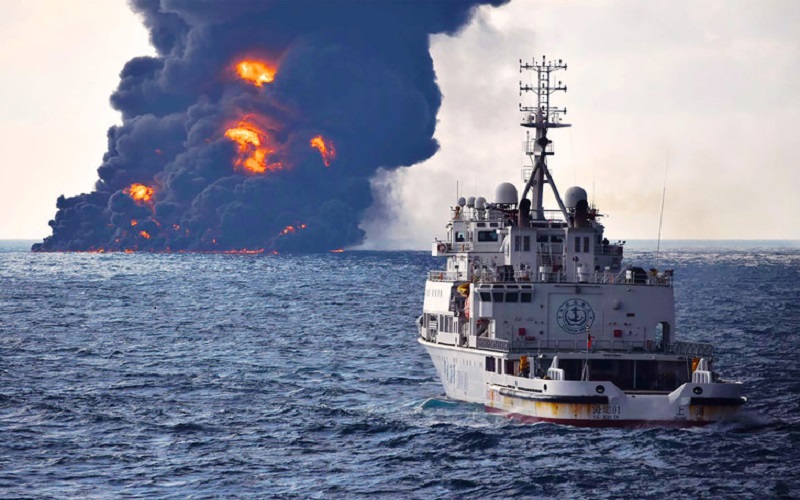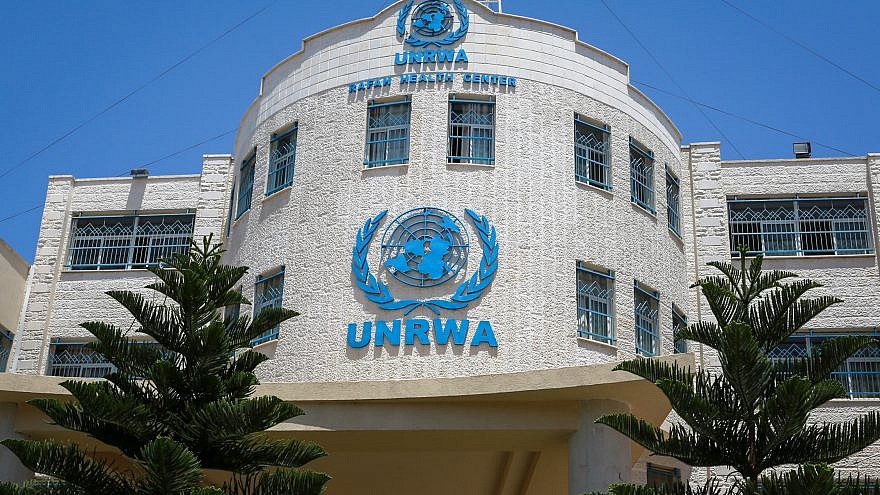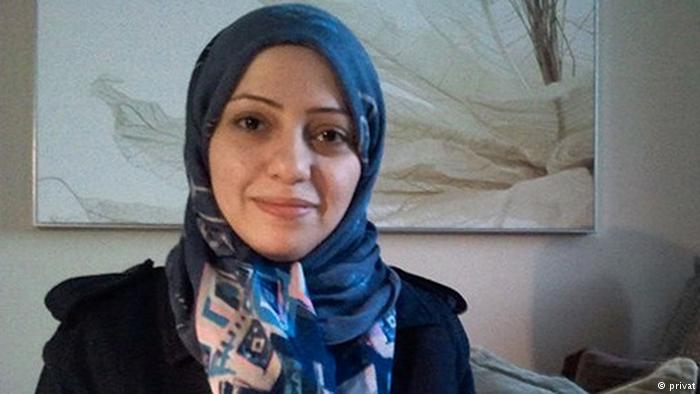Australia/Israel Review
Behind the News – September 2018
Aug 31, 2018 | AIJAC staff

ROCKETS AND TERROR
More than 180 rockets were fired from Gaza into Israel on Aug. 8 and 9, 30 of which were downed by Israel’s Iron Dome missile interception system, while others fell in open areas.One rocket landed in the large southern Israeli city of Beersheba for the first time since 2014. Seven Israelis were wounded by the Palestinian shelling.
Violent protests along the Israel-Gaza border have continued to occur every Friday. An estimated 159 Palestinians have now been killed since the start of the “March of Return” protests on March 30, the majority identified as members of Hamas or other terror groups.
Meanwhile, Palestinian arson terrorism using kites and balloons continued on a daily basis – more than 40 fires were lit in southern Israel on Aug. 4 and 5 alone. Incendiary balloons from Gaza have landed as far away as Beersheba.
BORDER RE-OPENS AMID TRUCE HOPES
On Aug. 15, Israeli officials announced the security situation had calmed sufficiently to facilitate the reopening of the Kerem Shalom crossing between Israel and Gaza. Israel also said it was increasing the size of the offshore zone in which Gazans were allowed to fish in the Mediterranean.
At the height of recent Hamas rocket attacks, Israel had restricted the transfer of goods other than food and medical equipment into Gaza via Kerem Shalom.
While there is no official ceasefire with Hamas, Israeli media reported that Israeli Prime Minister Binyamin Netanyahu had secretly travelled to Egypt in mid-August to progress negotiations over a Gaza truce with his Egyptian counterpart Abdel-Fattah al-Sisi.
Meanwhile, on July 22, the Islamic State announced one of its key leaders in Sinai, Abu Jaafar al-Maqdesi, had been killed by Egyptian forces. The killing appears to be the latest Egyptian achievement amidst growing signs that Cairo, with reported Israeli help, may be gaining the upper hand against the long-standing ISIS insurgency in Sinai.
IRAN ADMITS DIRECTING ATTACK ON SAUDI TANKERS
On Aug. 6, the Iranian news agency Fars published statements by General Naser Sha’bani, a top official of Iran’s Islamic Revolutionary Guards Corps, confirming that Iran had ordered the pro-Iranian Ansar Allah (Houthi) rebels in Yemen to attack two Saudi tankers in the strategic Bab el-Mandeb strait on July 25. The attacks on the tankers briefly halted Saudi oil shipments through the Red Sea. The statement was subsequently deleted from the Fars website.
Meanwhile, a report by a UN panel of experts has found that the Houthi rebels in Yemen are still arming themselves with ballistic missiles and drones that “show characteristics similar” to Iranian-made weapons. According to news reports, the UN panel reported to the UN Security Council that it “continues to believe” that short-range ballistic missiles and other weaponry were transferred from Iran to Yemen after an arms embargo was imposed in 2015. The report said the UN panel visited Saudi Arabia and inspected debris from 10 missiles and found markings that suggested an Iranian origin.
HEZBOLLAH CRIME CRACKDOWN IN EUROPE AND SOUTH AMERICA
The 2018 European Union Terrorism Situation and Trend Report, published on June 20, states that Lebanese nationals worked with organised crime organisations in Europe to finance Hezbollah’s terrorist activities. The report discussed a “major investigation focused on a large network of Lebanese nationals offering money laundering services to organised crime groups in the EU and using a share of the profits to finance terrorism-related activities of the Lebanese Hezbollah’s military wing.”
Meanwhile, other reports say that law enforcement authorities have been cracking down on Hezbollah-linked money laundering activities in the Tri-Border Area (TBA) of South America, where Argentina, Brazil and Paraguay meet. In mid-July, Argentina’s Financial Intelligence Unit (FIU) reportedly froze the assets of 14 Lebanese nationals and residents of the TBA who were allegedly part of a criminal organisation affiliated with Hezbollah. This move followed the arrest by Paraguay of two Lebanese nationals suspected of ties to Hezbollah earlier this year.
The network is alleged to have laundered the equivalent of approximately US$3.75 million (A$5.1 million) across the TBA via a local casino.
IRAN FUNDING OF HEZBOLLAH AND PALESTINIAN TERROR GROUPS
Israeli newspapers reported that, according to intelligence sources, Iran continues to fund the primary terrorist groups in the Palestinian Territories, Hamas and Palestinian Islamic Jihad (PIJ), to the tune of approximately US$100 million (A$136 million) annually, with US$70 million going to Hamas and US$30 million to PIJ. Iran also funds several other terror groups, including the Popular Front for the Liberation of Palestine (PFLP) and the PFLP- General Command, as well as a Shi’ite splinter from PIJ, al-Sabireen, although estimates for total funding for these groups are not available.
Iran’s Lebanese client Hezbollah reportedly currently receives US$800 million (A$1.09 billion), down from US$1 billion per year in recent years due to Iran’s increasingly difficult financial situation. It is unclear whether these totals include training and weapons.
US ADMINISTRATION SEEKS CHANGES TO UNRWA

UNRWA: Reform push crucial to US peace efforts
US President Donald Trump and his Special Advisor on the Middle East and son-in-law Jared Kushner have reportedly identified reform to the United Nations Relief and Works Agency (UNRWA) as a priority going forward for Washington’s Middle East policies.
A leaked email that Kushner wrote in January reportedly said that “It is important to have an honest and sincere effort to disrupt UNRWA… This [agency] perpetuates a status quo, is corrupt, inefficient and doesn’t help peace.”
US efforts to reform UNRWA are expected to form part of an anticipated forthcoming proposal by the White House for Israeli-Palestinian peace, but reports say the Administration has postponed the release of its peace plan until after the US midterm elections in November.
SAUDI-CANADIAN SPAT

Human rights activist Samar Badawi
Canadian-Saudi Arabian relations have been experiencing a major diplomatic meltdown since Canadian Foreign Minister Chrystia Freeland tweeted on Aug. 3 that she was ‘very alarmed’ about the imprisonment of human rights activist Samar Badawi in Saudi Arabia. On Aug. 4 a twitter account associated with the Foreign Ministry in Ottawa followed up by tweeting that “Canada is gravely concerned about additional arrests of civil society and women’s rights activists…We urge the Saudi authorities to immediately release them and all other peaceful #humanrights activists.”
The Saudi response was to describe these tweets as “blatant interference in the kingdom’s domestic affairs” and a “major, unacceptable affront to the kingdom’s laws and judicial process, as well as a violation of the kingdom’s sovereignty.” Saudi Arabia then moved to expel Canada’s Ambassador in Riyadh, recalled its own Ambassador from Ottawa, suspended Saudi Airlines flights to Canada, ordered a freeze on new trade and investment and instructed its central bank and state pension funds to divest from all Canadian assets. The kingdom also ordered the withdrawal of 16,000 Saudi university students studying in Canada and of Saudi doctors from Canadian hospitals.
The Canadian Government has reacted to the Saudi actions by standing behind Freeland’s statement, but refraining from commenting further.
On Aug. 6, a Twitter account linked to the Saudi Government shared an image of an aeroplane flying towards the Toronto skyline with the words, “As the Arabic saying goes, he who interferes with what doesn’t concern him finds what doesn’t please him.” The tweet was subsequently deleted and an apology issued.






